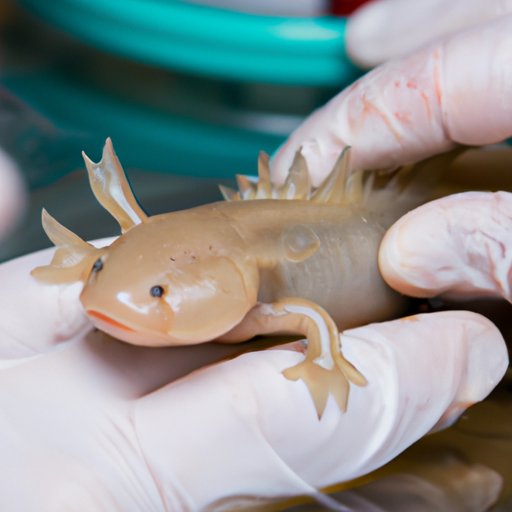Introduction
Axolotls are a type of salamander native to Mexico that have become popular pets in recent years. They are known for their vibrant coloration and unique appearance, making them a fun and interesting addition to any home. While they may look like other amphibians, caring for an axolotl is quite different. Here is a guide on how to properly care for an axolotl.
Provide a Clean and Stress-Free Environment
The first step in providing proper care for an axolotl is creating a clean and stress-free environment. An aquarium that is at least 10 gallons in size is recommended, as it will provide enough space for your axolotl to move around and explore. Make sure to keep the tank free of debris and uneaten food, as this can lead to bacterial growth and poor water quality.
Choose the Right Diet
When it comes to feeding your axolotl, variety is key. Axolotls are carnivorous and prefer small live food such as earthworms, bloodworms, brine shrimp, and blackworms. It is important to only feed your axolotl what it can consume in one sitting, as uneaten food can pollute the tank’s water. You should also supplement your axolotl’s diet with vitamins and minerals to ensure it gets all the nutrients it needs.
Monitor Water Quality
In order to keep your axolotl healthy, it is important to regularly test the water in its tank. This includes checking the pH and temperature levels to make sure they remain stable. If the water quality is not ideal, you can use a water conditioner to help improve it. Additionally, you should replace 25-50% of the tank’s water every week to keep it clean.
Handle Carefully
When it comes to handling your axolotl, it is important to do so with caution. Always use wet hands when handling your axolotl, as dry hands can cause irritation to its delicate skin. Additionally, be careful not to squeeze its body, as this could cause injury or discomfort.
Seek Veterinary Care
If you notice any signs of illness or injury in your axolotl, it is important to take it to the vet as soon as possible. A veterinarian can diagnose any potential health issues and provide the necessary treatment to help your axolotl recover.
Conclusion
Axolotls make wonderful pets, but proper care is essential for keeping them happy and healthy. By providing a clean and stress-free environment, choosing the right diet, monitoring water quality, handling carefully, and seeking veterinary care when needed, you can ensure your axolotl remains happy and healthy for years to come.


